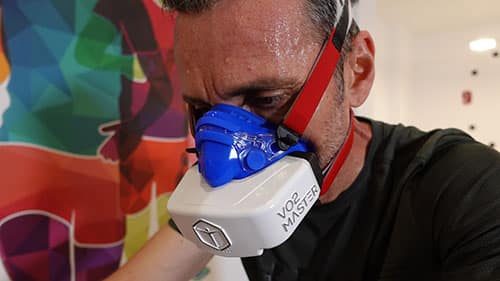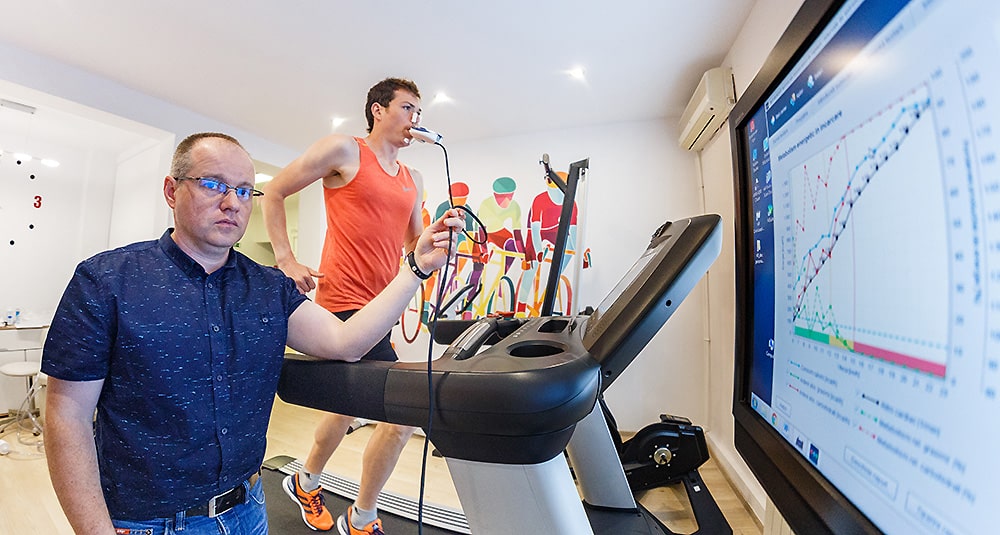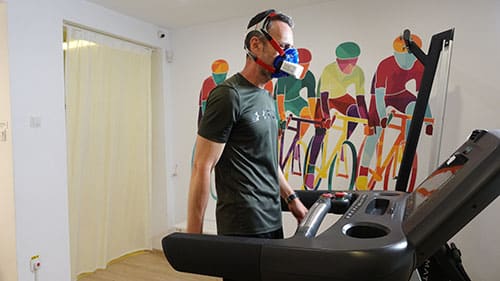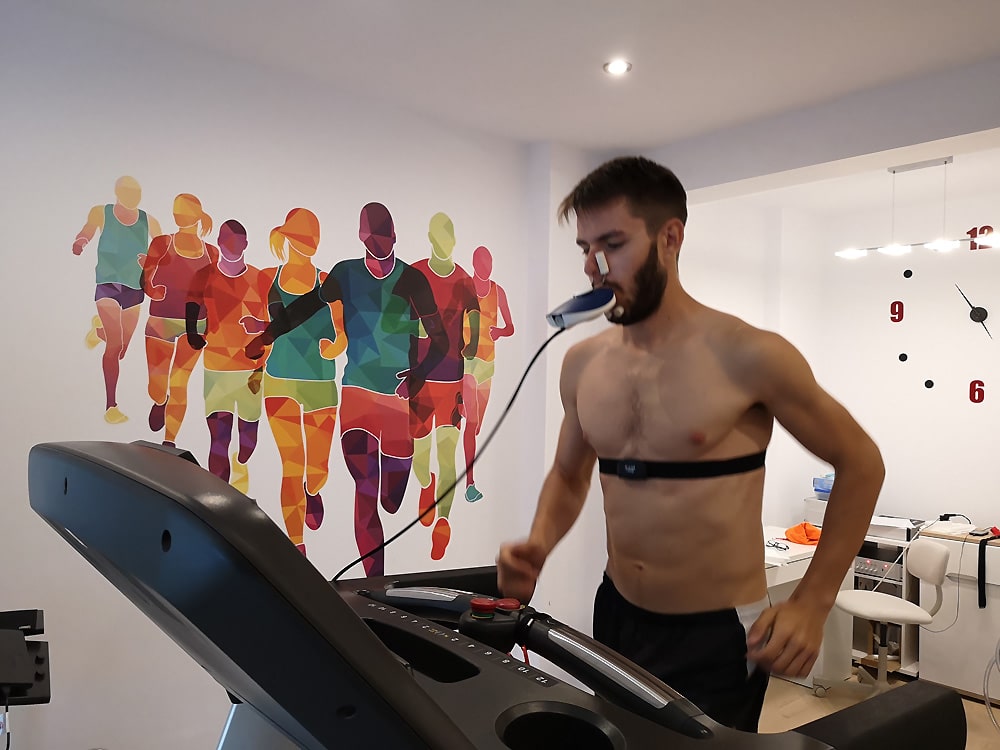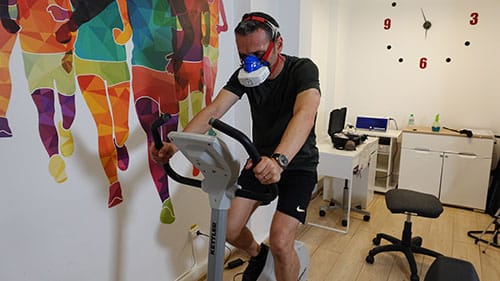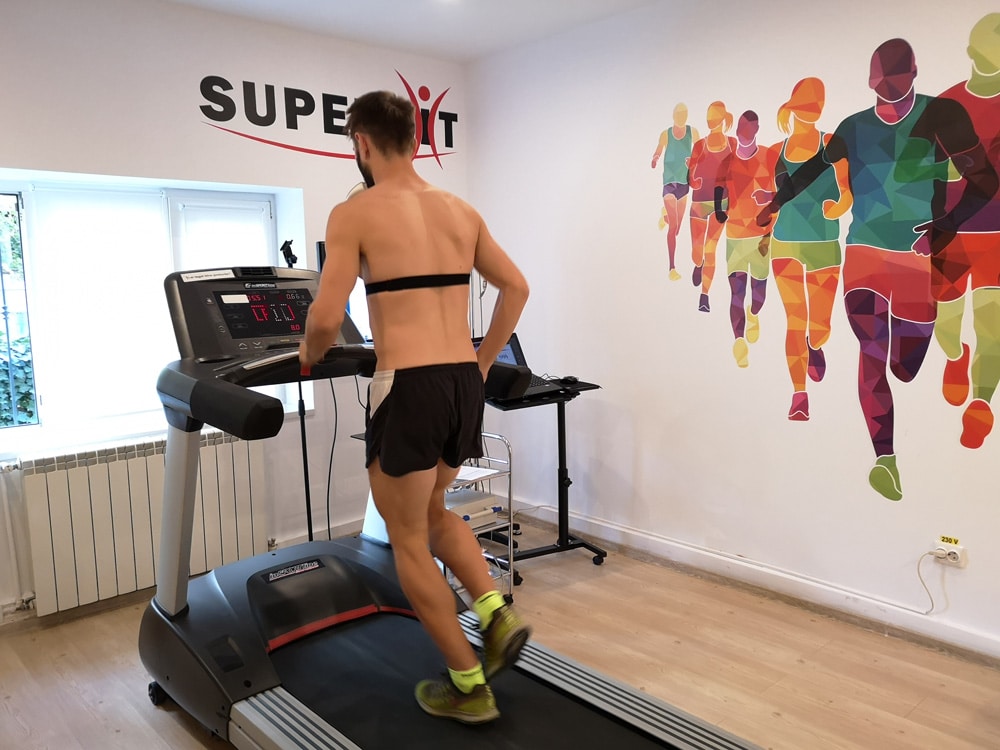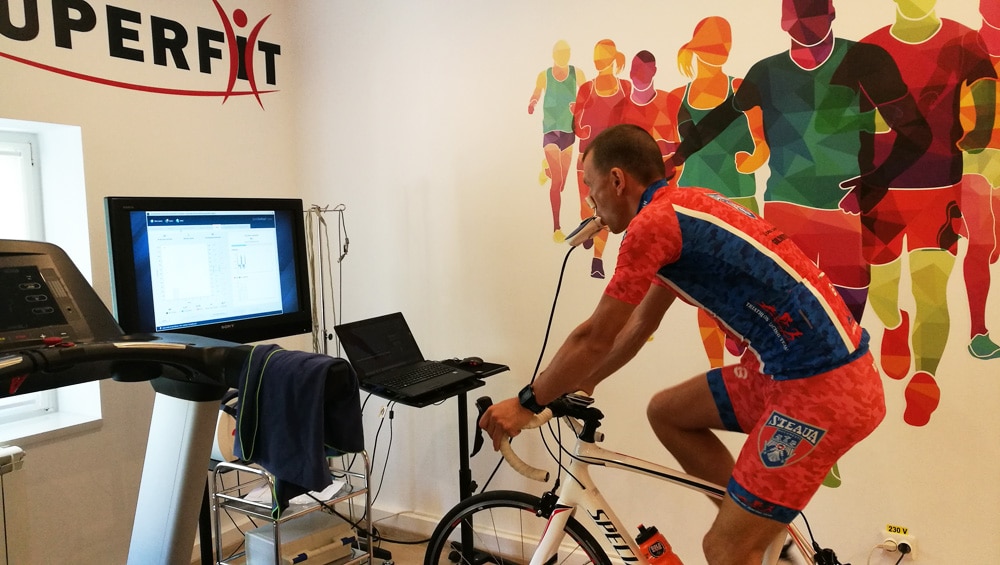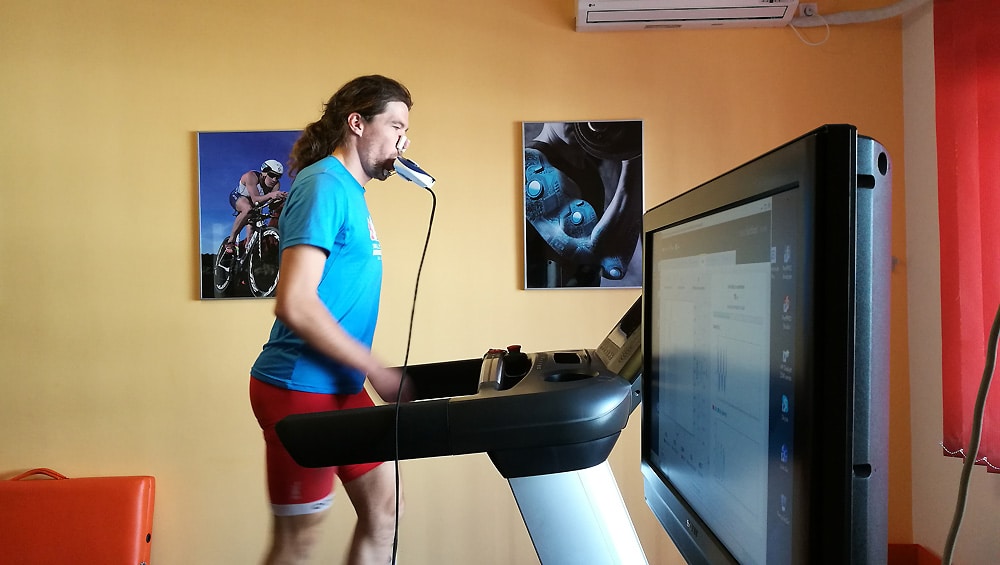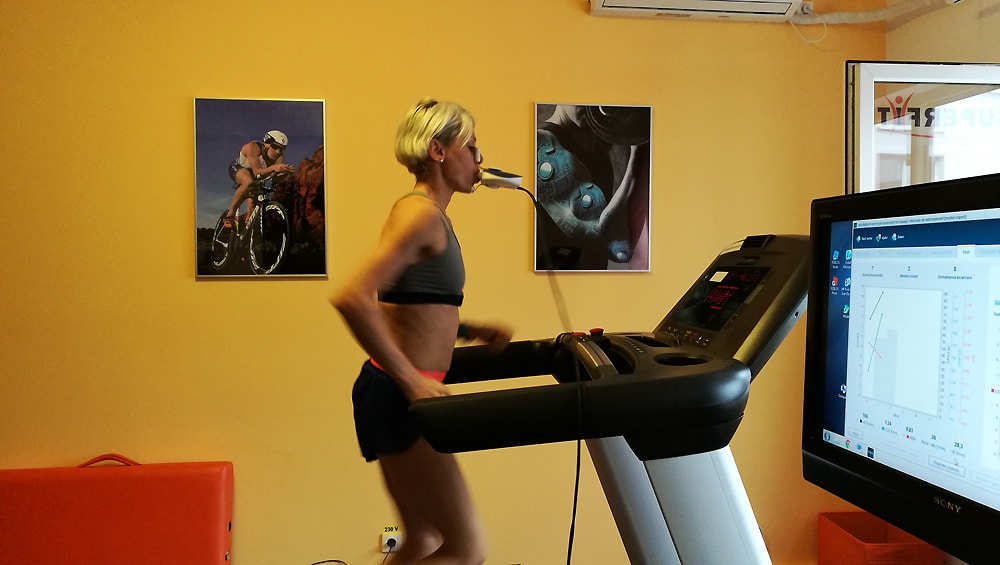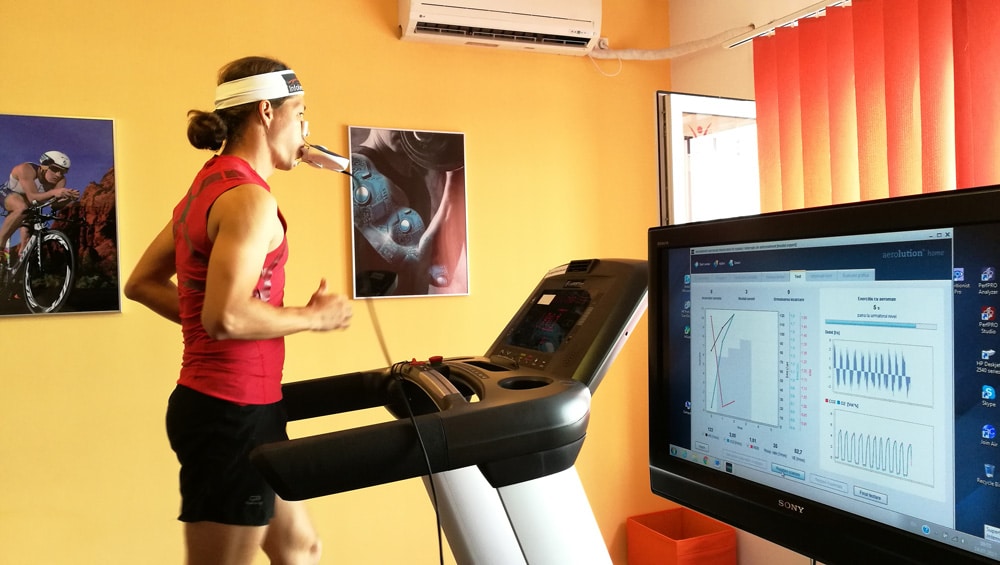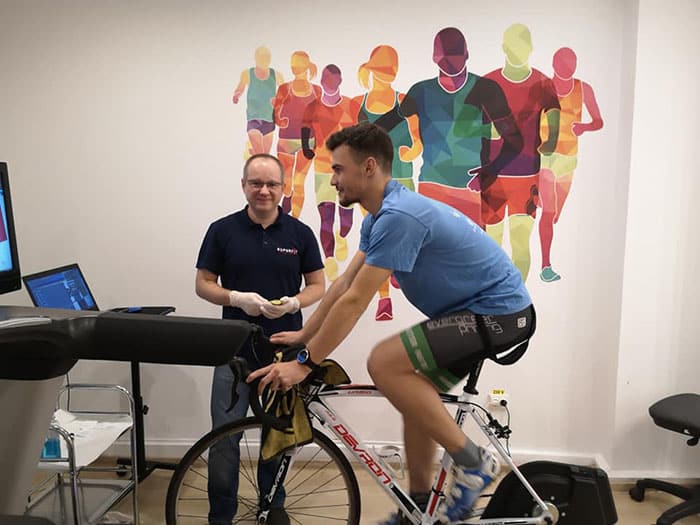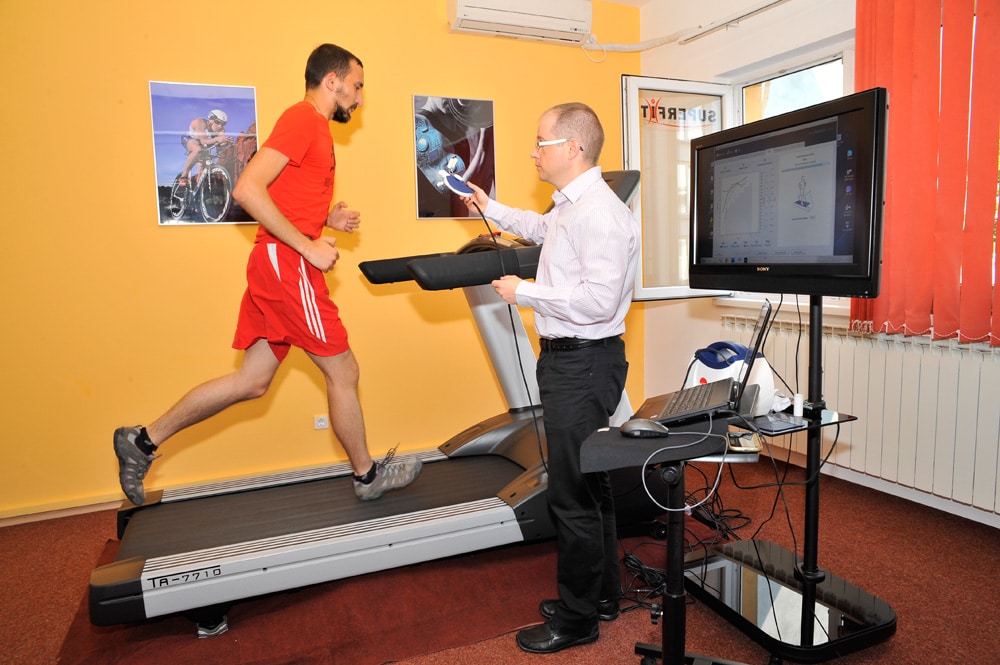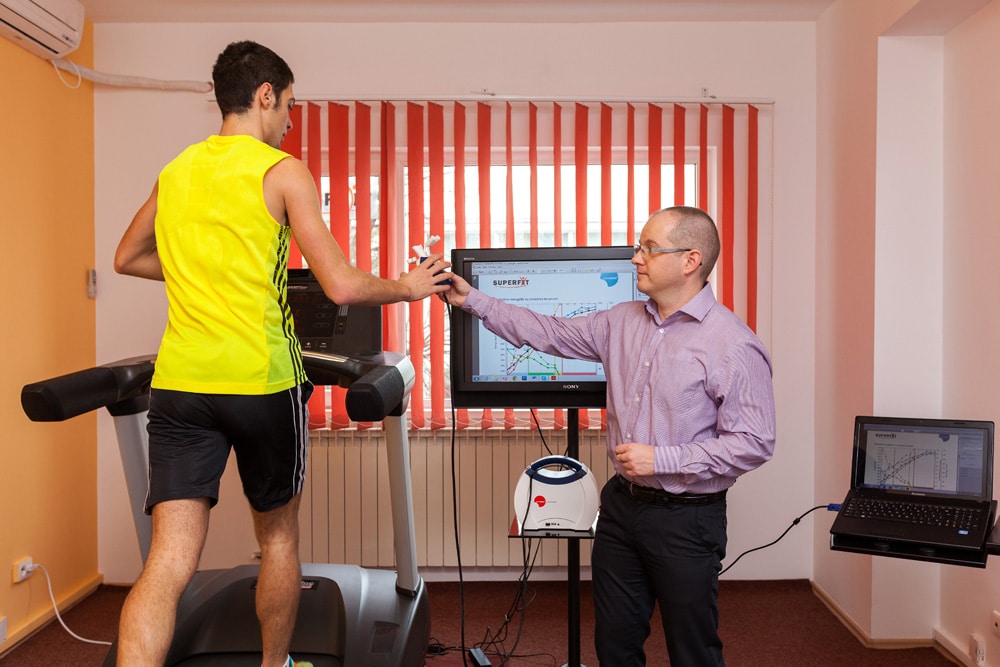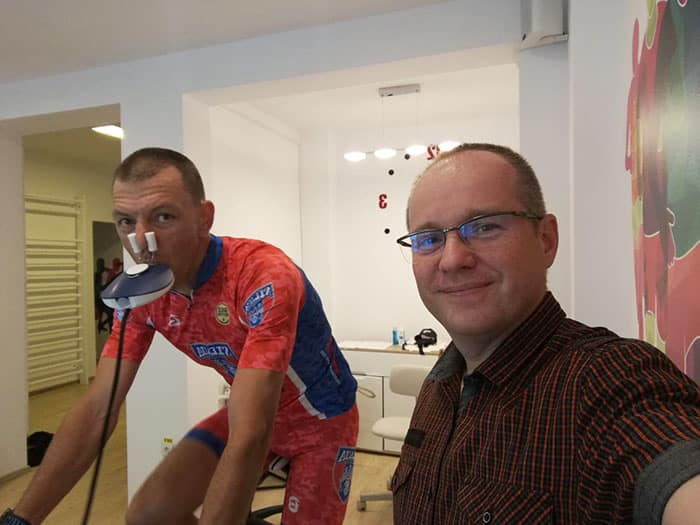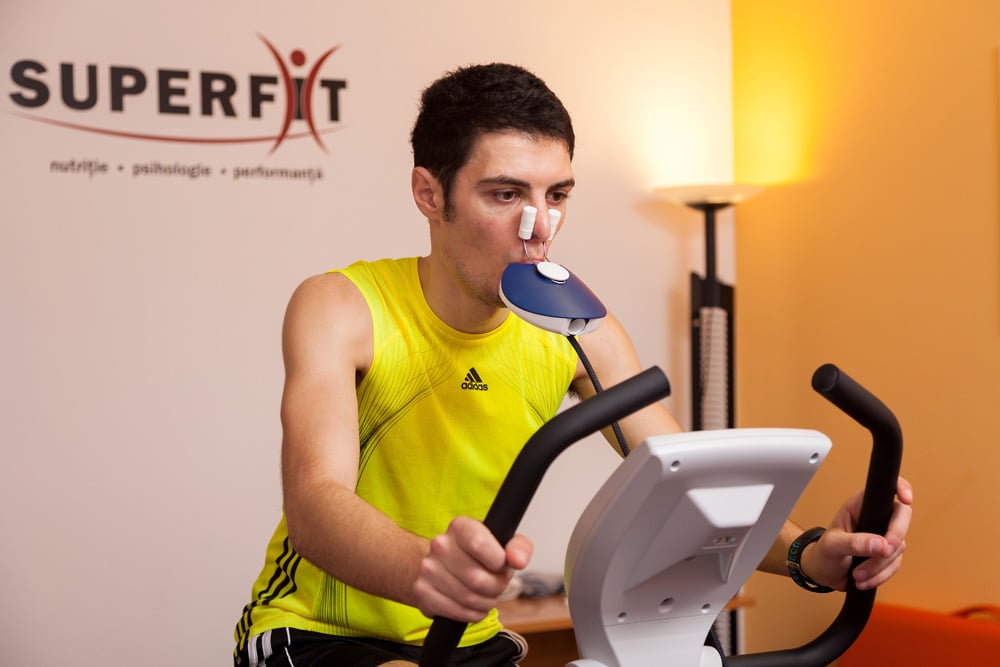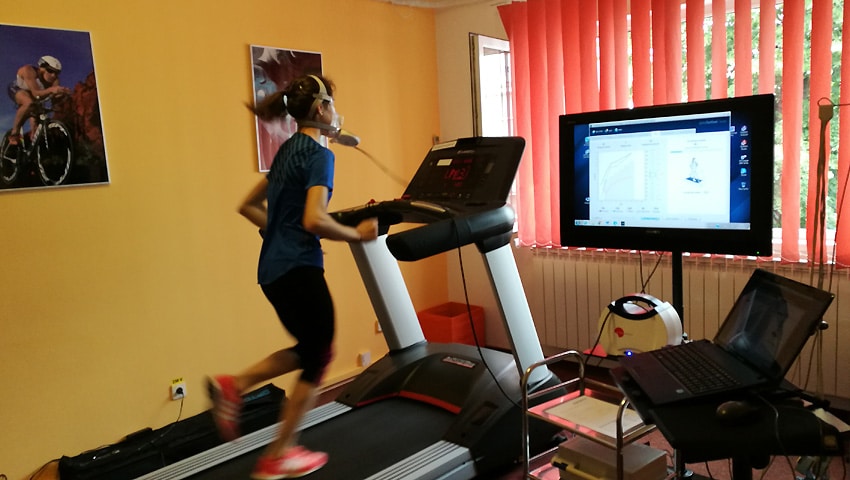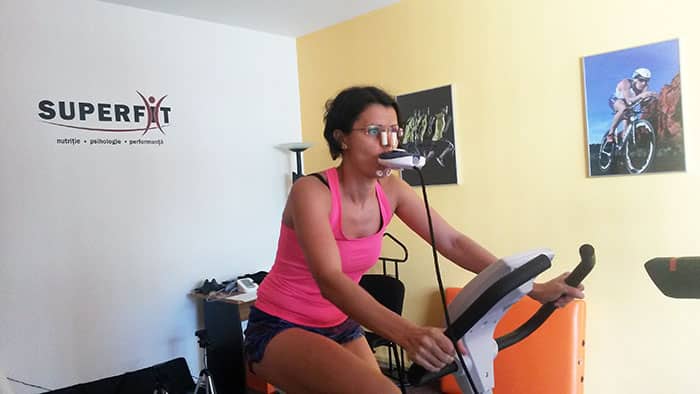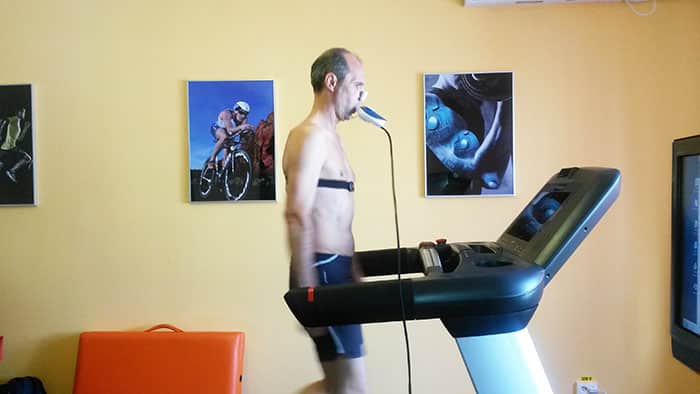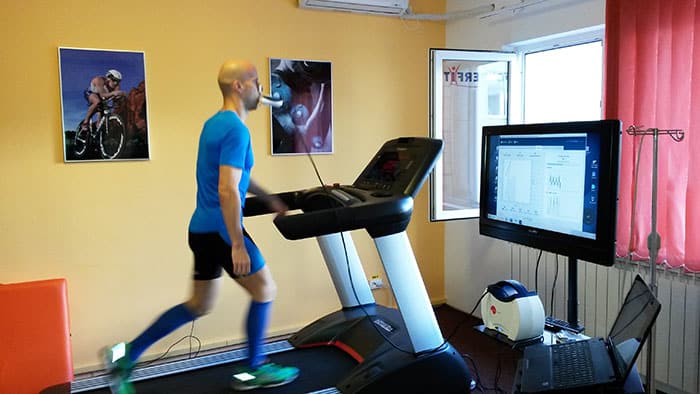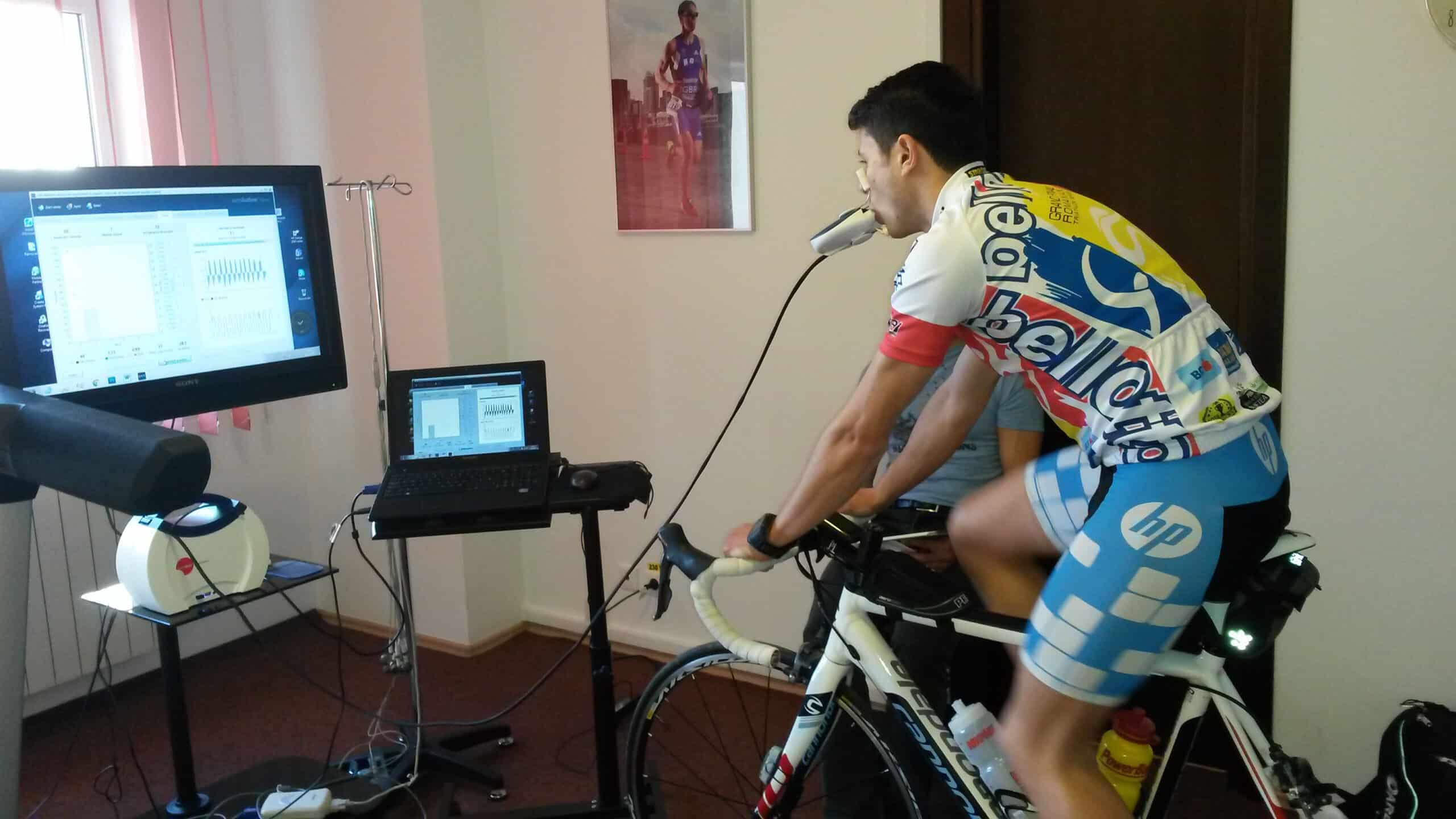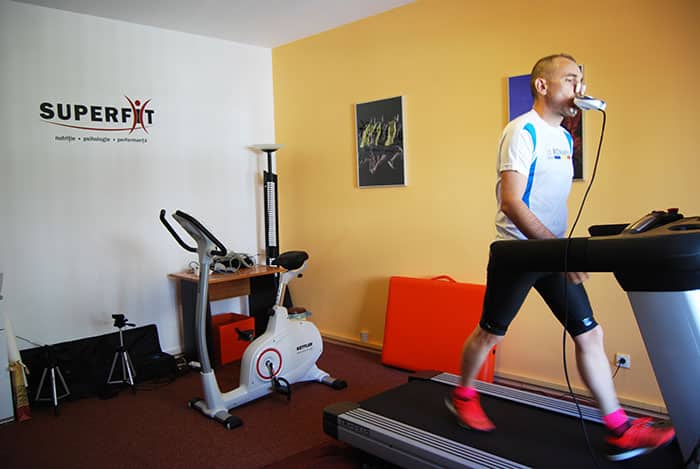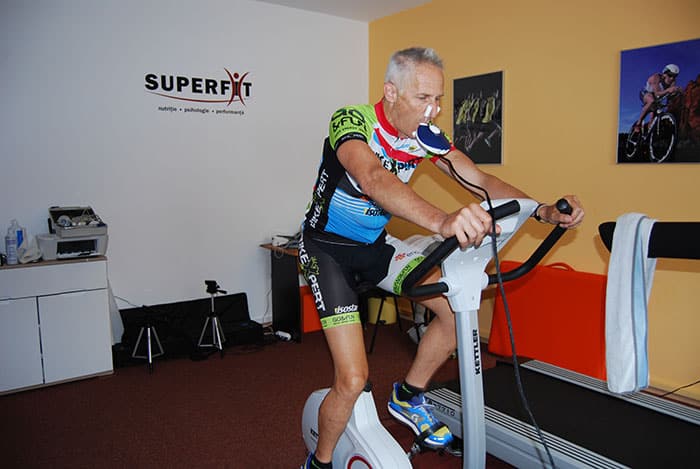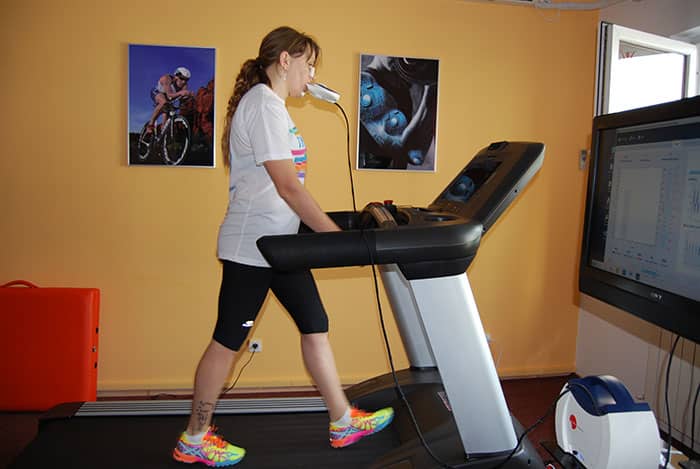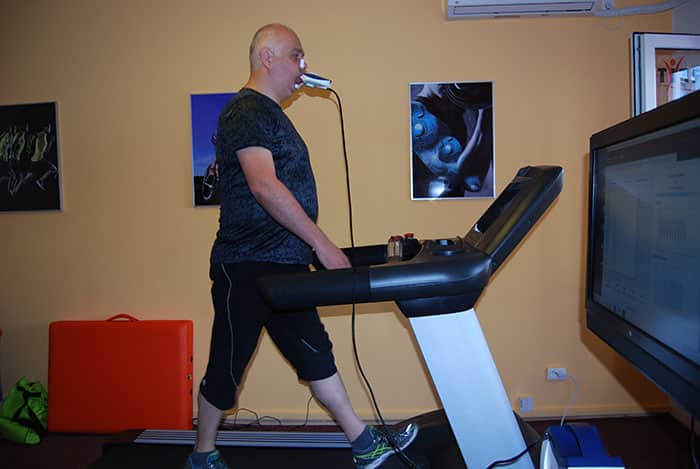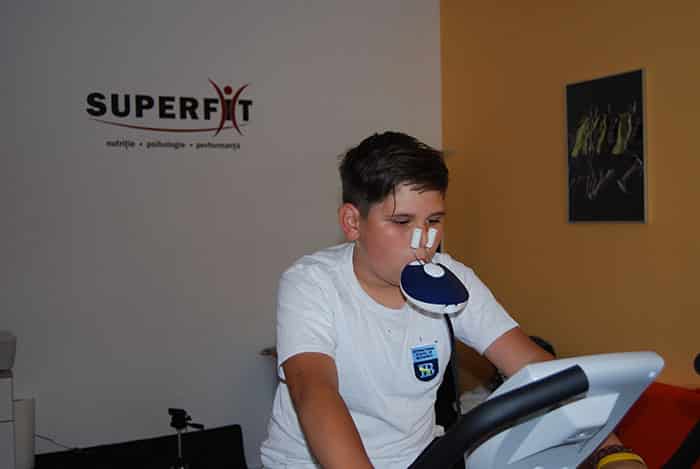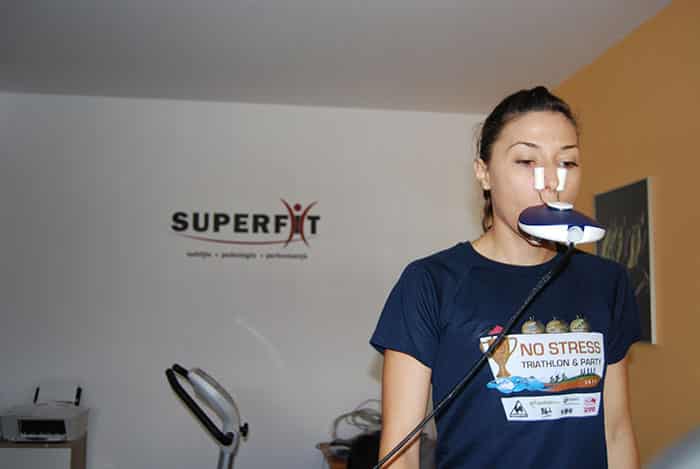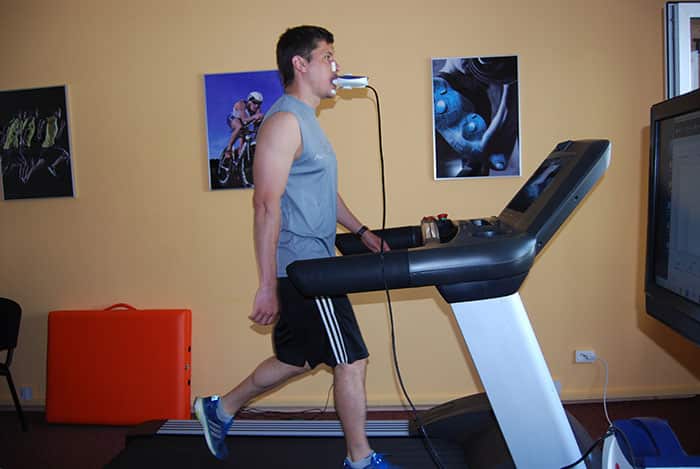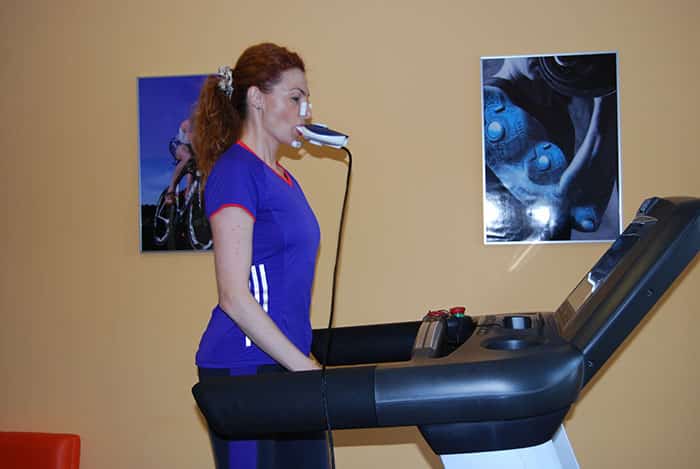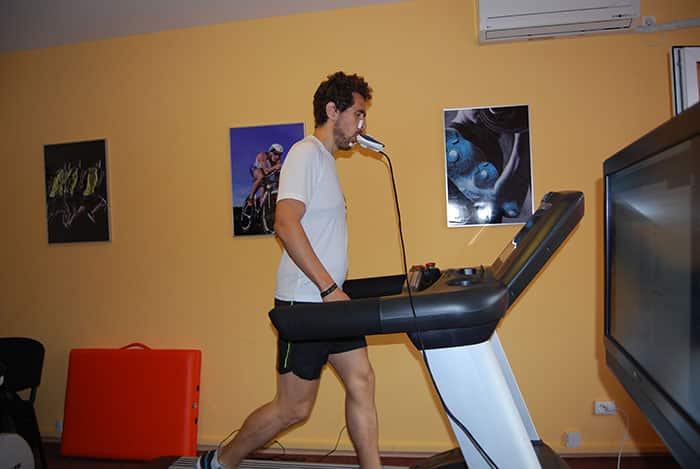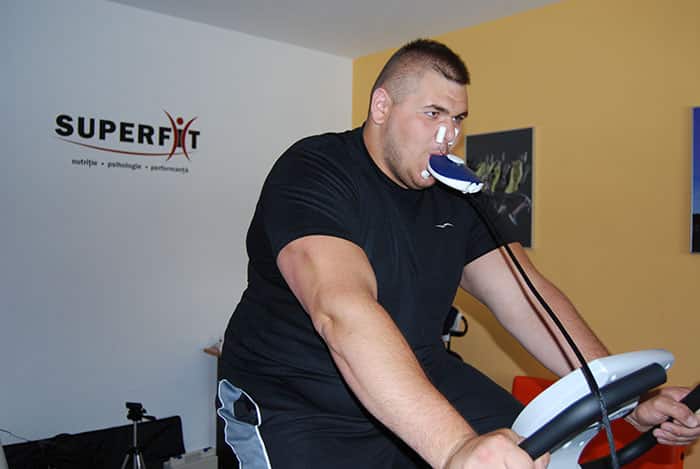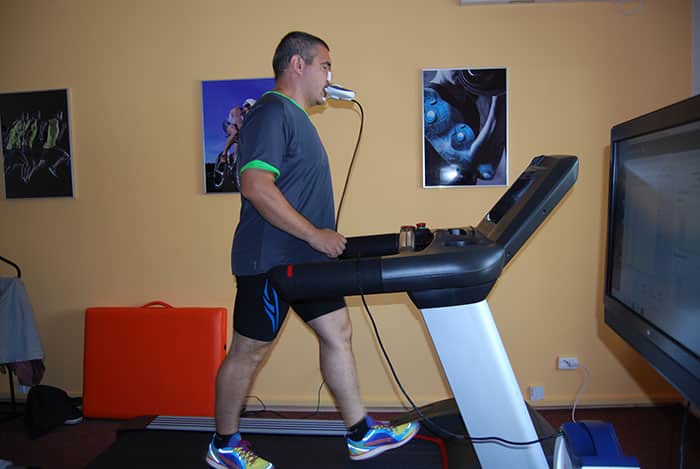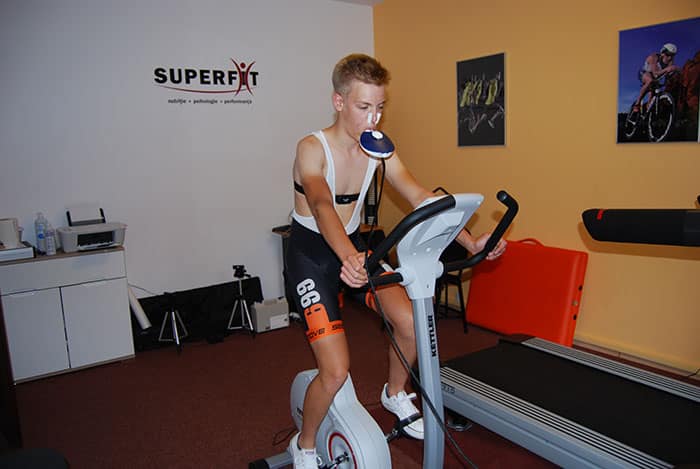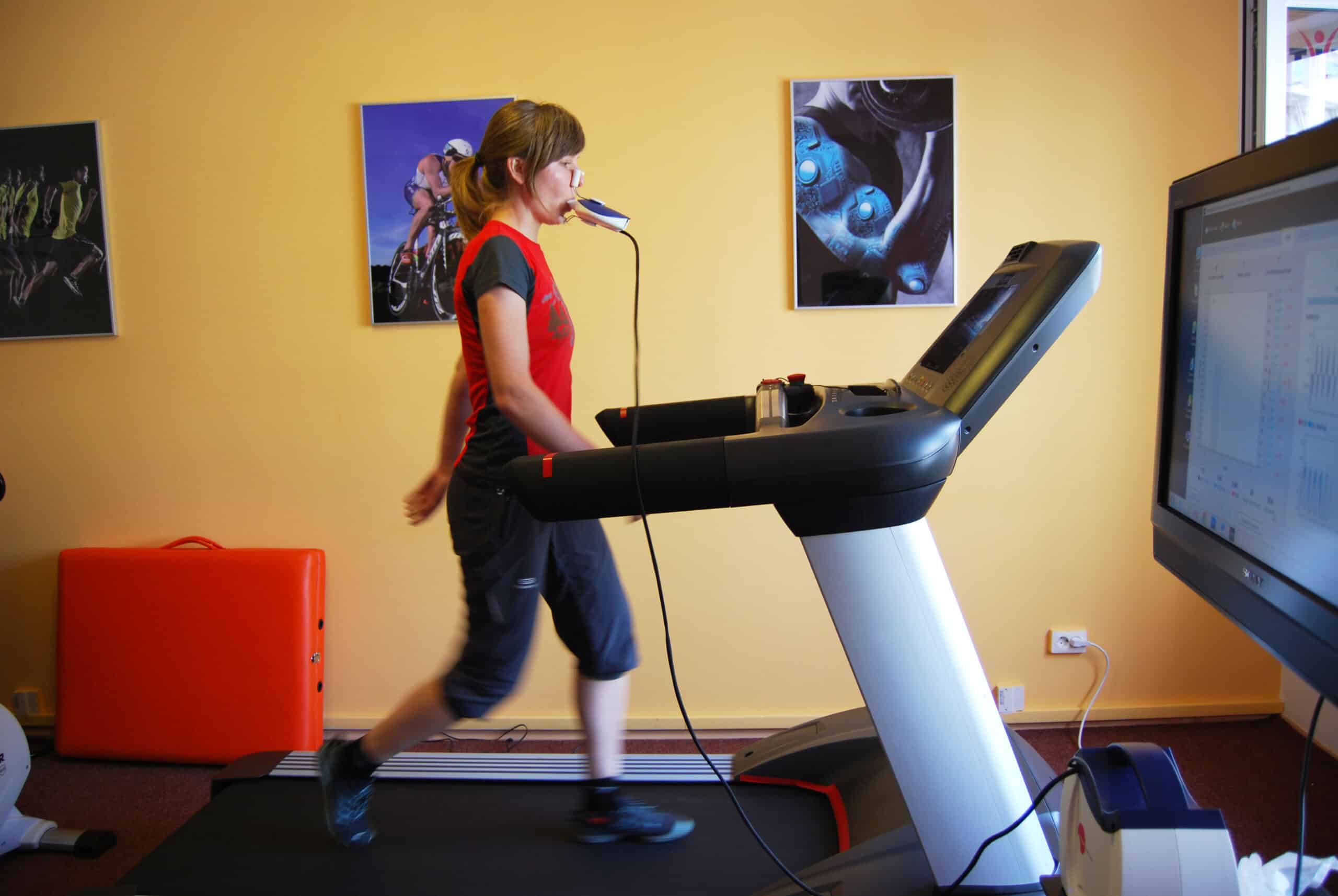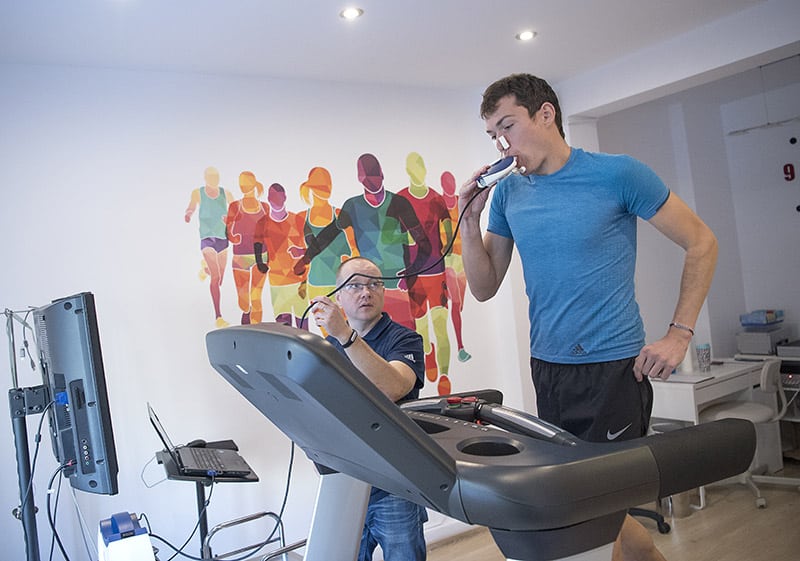
Cardiometabolic testing is internationally recognized
“gold standard” way of measuring the physiological parameters that characterize a person’s ability to exercise and perform. Until recently, this investigation was only available in research laboratories, but now it has become available in our center.
This complex analysis gives you the opportunity to understand more about your body and the parameters that will form the basis of a good diet and a truly personalized training program, to help you to achieve your goals.
What can you learn from cardiometabolic testing?
Cardiometabolic testing is a complex investigation that determines:
– resting metabolism rate (actual basal metabolism, obtained by measurements, not determined by calculations) – this represents the amount of energy you consume at rest; your diet is designed from this value
– metabolic rate in effort – how many calories you consume at various exercise thresholds – with the help of these values you can create a truly personalized training program
– establishing the proportions in which the main nutrients (lipids, carbohydrates) are metabolized during physical exertion (in real values and percentages) – this way we will know exactly what pulse values you have for the training to be effective for the intended purpose
– measurement of respiratory volumes (O2 and CO2)
– establishing training areas – what is the threshold where your body consumes the most fat efficiently, what is the threshold where you enter the anaerobic area, etc.
All these measurements are the basis for the design of a personalized training program, based on training areas, which can be designed to lose weight, improve endurance or maintain fitness as an anti-aging method.
What does this investigation entail?
First of all, it is an important pre-condition that you have no serious medical conditions.
Cardiometabolic testing takes 10-20 minutes (but with all the preparation and recovery after exercise, the whole procedure can take 45-60 minutes)
Before the actual analysis, blood pressure will be measured, a resting electrocardiogram will be performed (this has a screening role, not a diagnosis) and a spirometry.
It starts with measuring the metabolism at rest, then the exercise test is performed, either on the treadmill (recommended especially for experienced athletes) or on the stationary bike (cycloergometer – recommended especially for cyclists, triathletes, athletes in non-running sports as well as sedentary people). In most cases, the effort will be submaximal, its intensity will increase from mild to moderate. For this reason, testing is also suitable for people with reduced physical condition (sedentary, out of shape) or for the elderly.
In the case of amateur and performance athletes, maximum tests can be done to determine VO2max (the most important parameter that shows the level of fitness). During the test you will breathe through a small mouthpiece (tube) connected to the analyzer and further to the computer. Through the exchange of respiratory gases it can be determined how the metabolism reacts to various intensities of physical exertion. The results of the measurements show which are the training areas in which your body consumes mainly fat or carbohydrates.
PRACTICAL INFORMATION, WITH IMMEDIATE
APPLICATION
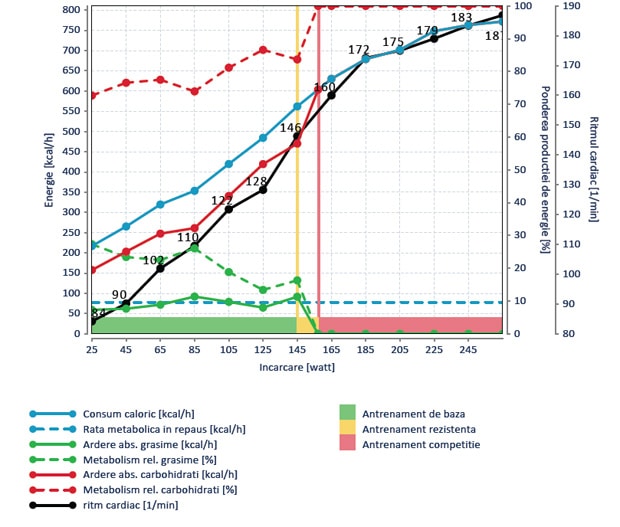
This investigation provides very useful information to enable athletes to train safely!
Spiroergometry or the cardiorespiratory exercise test is a combined test that assesses the ability of the cardiovascular and respiratory systems to ensure metabolic exchanges and gas exchanges between cells and the environment.
Performance athletes and those who want to train need such tests to see the initial effort capacity. Testing is very important for performance athletes because a possible cardio-pulmonary disease can be diagnosed in time.
For sports physiology, this test is essential, as it shows the ability of the heart and lungs to send oxygen throughout the body, as well as the ability of the muscles to use it.
The benefits of cardiometabolic testing for athletes:
- Improves performance,
- Improves endurance,
- Increases competitiveness,
- Helps increase the efficiency of training.
This test can be done by anyone, regardless of their level of fitness!
The test is also recommended for patients who have respiratory problems, who get tired very quickly, and who cannot make a medium effort (for example, climbing stairs) to see if these problems are caused by heart disease, lung disease, anemia, or other metabolic diseases.
Following the test, an advanced diagnosis can be established not only in the cardio-pulmonary field, but also in nutrition, metabolism, rehabilitation and recovery.
Here are some of the athletes who were tested at the Superfit Center!

